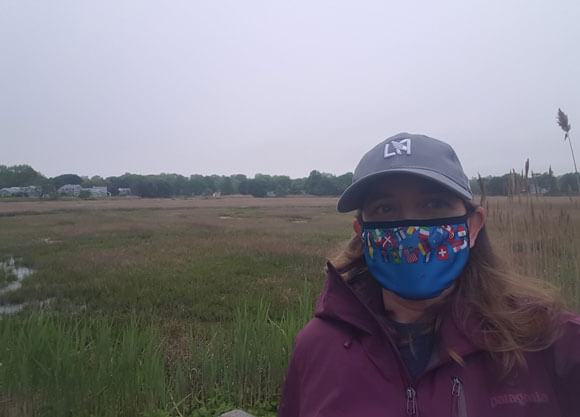
Anthropology professor to examine women's role on the front lines of COVID-19
March 08, 2021

March 08, 2021

“What constitutes a front line for women has certainly changed through time,” she said. “Taking the front line at its most militaristic sense, women in the U.S. certainly have had to push to be included equally in the armed forces — but many front lines have been made up by a significant number of women in recent history, including nurses, nursing-home workers, farmer laborers, grocery-store employees, teachers, etc.”
Haldane said she is fascinated by how anthropology is the discipline that studies humans in a holistic sense — through our evolutionary history, our closest primate relatives, our archaeological past and our ethnographic present.
“There is no question you can ask or topic to explore that you can't address or approach through anthropology. It is essentially the entire liberal arts in one discipline, which makes it super cool,” she said. “Our job with our teaching at the undergraduate level is to challenge everything you think is natural or normal, since we study the incredible range of ways one can be human across cultures, and deep into our archaeological and evolutionary past.”
Not only is Haldane committed to educating the community on anthropology, but she also wants everyone to understand the important role women have within our history and society.
“I hope people can appreciate how heterogenous ‘women’ as a category can be, and how important it is to attend to all aspects of a person's social location to understand who they are, and the perspective they offer,” she said.
Quinnipiac Today is your source for what's happening throughout #BobcatNation. Sign up for our weekly email newsletter to be among the first to know about news, events and members of our Bobcat family who are making a positive difference in our world.
Sign Up Now